Peking University Professor Tea Room | Bai Jianjun: Everyone has something better than me, and I am different from everyone.
Date:2021-04-25
On the afternoon of April 8, the Student Work Department of Peking University held the 94th Professor Tea Room. Prof. Bai Jianjun of Peking University Law School held in-depth exchanges with students on the theme of "General Education and Interdisciplinary Study".
Professor Tea Room of Peking University is a campus cultural brand activity sponsored by the Student Work Department. Here, students can enjoy tea with famous professors, listen closely to the experience of professors, feel the style of scholars, comprehend the wisdom of life, further enhance the spirit of science and humanities, and realize the growth and responsibility of young people.
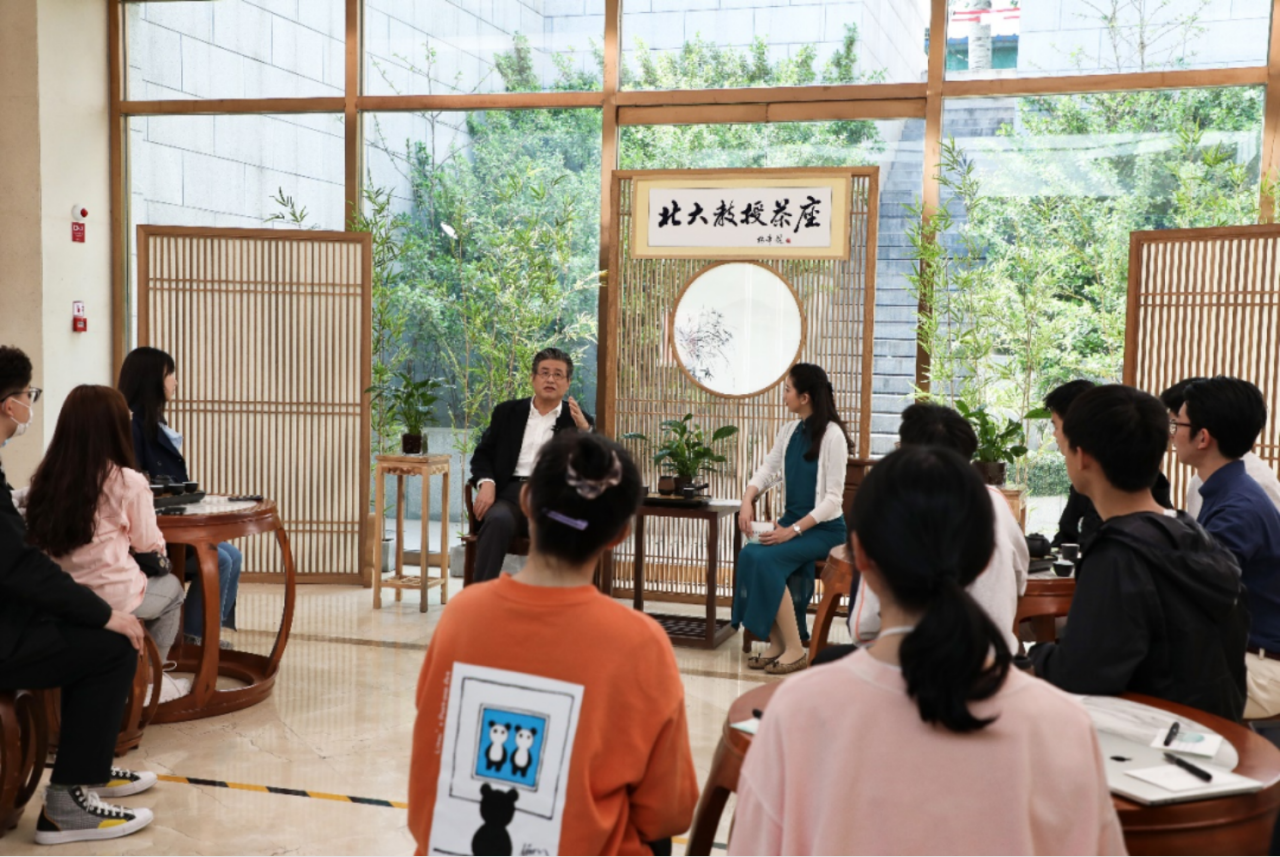
Tea Room
Bai Jianjun starts with examples of interdisciplinary talent, and then leads to the theme of interdisciplinary study. He gives an example of a student who can integrate his law major and computer major, use algorithms to mine the commonalities of a large number of judgments, and discover some rules and rationality that are not visible to the naked eye. Another student uses knowledge of law and statistics to differentiate the sentence of intentional homicide in a quantitative way, and publishes a high-level paper. Moreover, he mentioned that when he was teaching at Peking University, he often went to sit in on the courses of other subjects, saying that courses in other subjects are of great benefit to his teaching. Through these authentic empirical archetypes, Bai Jianjun believes that general education and interdisciplinary study have extraordinary significance and are conducive to solving major and complex scientific and social problems.
"What kind of pyramid is the tallest? "This is a question Bai Jianjun put forward to the students." Bai Jianjun believes that the size of the chassis determines the height of the pyramid, the larger the chassis, the higher the height of the load. What is the chassis? Bai Jianjun says the chassis is homophonic with general education and interdisciplinary study.
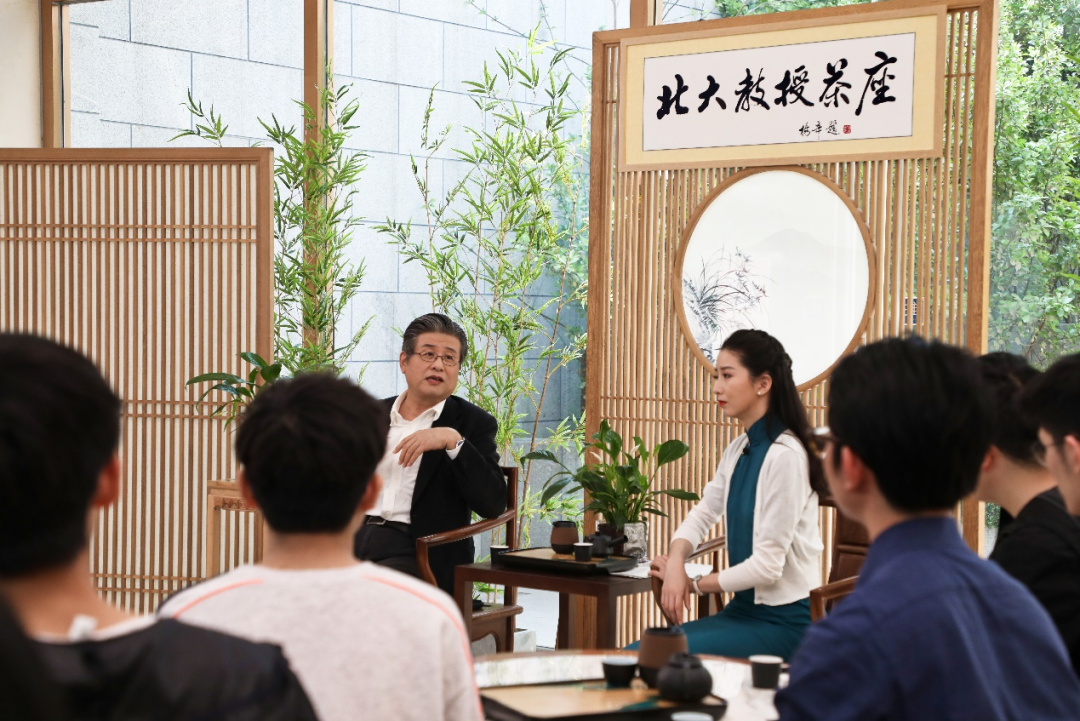
Bai Jianjun communicates and discusses with the students
Bai Jianjun continues to analyze "chassis", which has three layers of meaning. The first layer of meaning refers to the span of the discipline. In addition to their own "main rice bowl", everyone has a "private plot". Bai Jianjun uses his own experience of cross-disciplinary empirical research as an example saying that interdisciplinary points are often the new growth points of science, where major scientific breakthroughs are most likely to occur. Interdisciplinary integration is a major feature of the current development of science and technology, an important source of new disciplines, and an effective way to cultivate innovative talents. As for generalists and specialists, Bai Jianjun believes that in fact there is no real typical generalists or specialists. The real generalists are the knowledge of finding the right specialists and win-win cooperation. The same is true for specialists, who should know which academic framework to connect with, find their own position and realize their own value.
Bai Jianjun says, the second layer of "chassis", not only the knowledge span, but also includes the experience and practice of a large span. A dual or multi-disciplinary degree does not necessarily mean that they are interdisciplinary. The emphasis is on what they have done and whether they have practiced mechanics. Bai Jianjun explains the importance of practice and experience according to his own experience of jumping in line when he was young. Only by personal experience can we find the essence of things and the law of development. Many things do not follow our assumption of development, we must obey its actual law of development. Only by following the law can we achieve what they should be. So the experience is very necessary for a person's development. Sailing on the ladder, whether they succeed or fail, is a valuable asset in life.

Presenter and Speaker Bai Jianju
Bai Jianjun emphasizes the last layer of "chassis", referring to the capacity of the heart. Bai Jianjun says that after coming to Peking University, there is a common phenomenon that students have psychological disparity. Everyone is plagued by more or less stress, not only among classmates, but also among teachers. But if we are constantly immersed in the pressure of stress, it will reduce a person's pattern and have a lot of negative effects. What should we do in the face of this pressure? Bai Jianjun brings his own original "decompression secret book" - everyone has something better than me, and I am different from everyone. When others achieve success, we should sincerely admit that others are superior, and when we succeed, we should admit that everyone has their own unique. This is a two-way decompression method. Bai Jianjun believes that a person's heart, coupled with "18 kinds of weapons", works with joy for a lifetime. This is the greatest economy in life.
Bai Jianjun believes that there are three types of knowledge. The first is the classroom knowledge, that is to say the basic knowledge of the major, which is very important and necessary for you to graduate. The second is how to get knowledge, that is, the various ways to get knowledge. When you leave school, you have to have enough ways to find and solve problems, so that you can benefit from this kind of knowledge for the rest of your life. The third is how to organize knowledge, that is, to integrate knowledge around a problem, to form a system of your own, and even to form a school. These are the three types of knowledge and what it means to scholars.
Bai Jianjun believes that interests are the first factor in choosing an interdisciplinary course. To some extent, he emphasizes that the core task of a university is not to discover the unknown, but to discover yourself. Bai Jianjun encourages students to follow their own interests, follow their own feelings, so that the interest leads you to find out the relevant disciplines outside of the field, to find a gold mine in your heart, and to find a lifetime of happiness and pursuit.
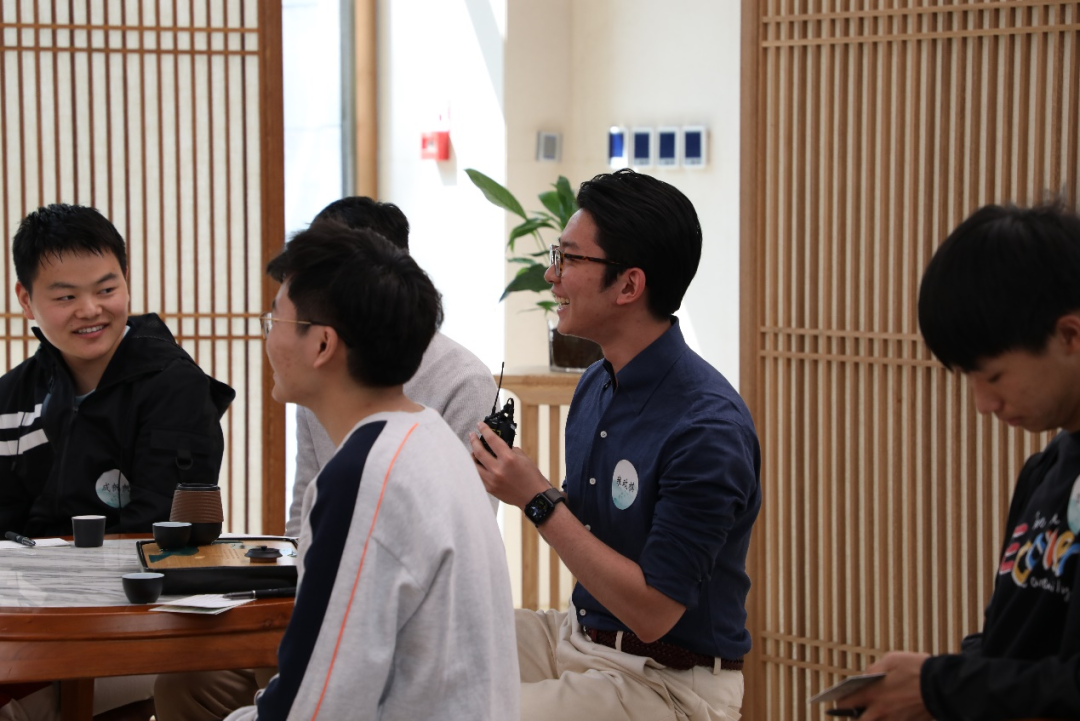
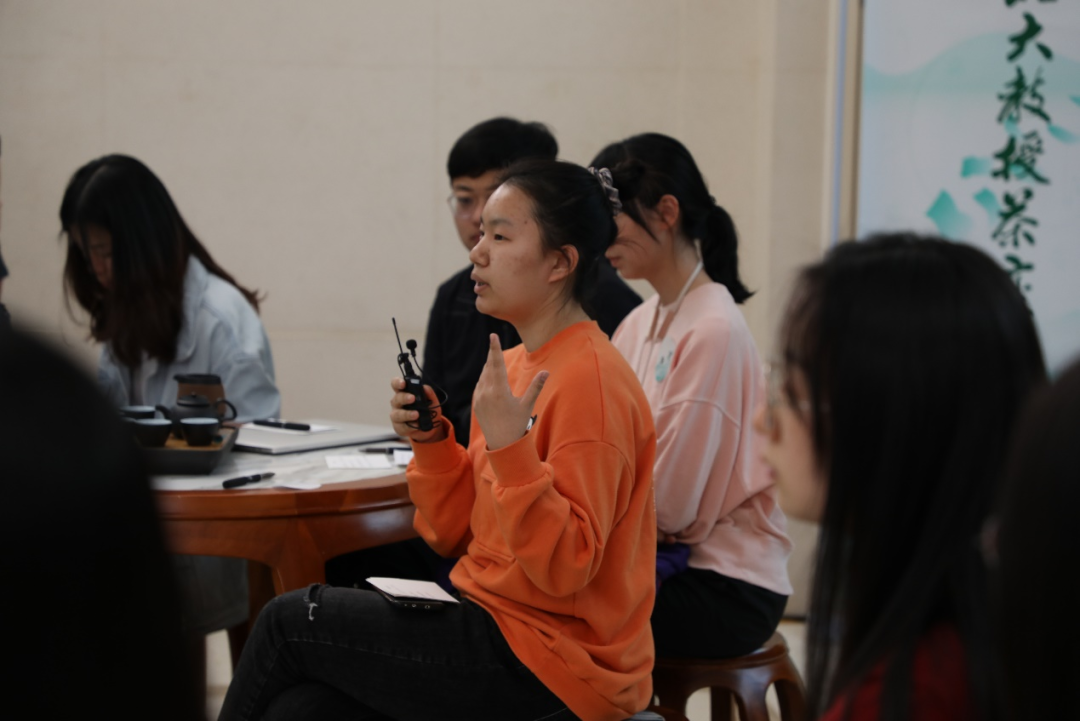
Questions from students
Some students ask whether it is possible to help students overcome the pressure and pursue their own interests through some institutional approach. Bai Jianjun points out that there are indeed some students put too much emphasis on grades. The development of personality should be promoted. But institutional intervention is only an auxiliary means, we should not rely too much on the system. The most important thing is to rely on their own, to practice, to respect their own interests and hobbies, only from the mentality of a thorough breakthrough and change, in order to become self-confident.
Some students expressed doubts about the interdisciplinary cross, saying that a lot of situations just add the two subjects together, a simple addition. They want to know how to achieve a vertical integration. Bai Jianjun believes that simple addition is not desirable. He proposes a simple criterion for determining whether a subject is to add, that is, to remove a certain part of the content to see if the original content is still tenable. If it is true, it is simply addition; if when a piece of content is removed, the big chain of logic breaks, this is called deep integration. As for how to achieve deep integration, Bai Jianjun points out that problems should be more problem-oriented, and that following the problem is the best mentor.
Some students asked how to go out of the circle of law research, affecting non-law disciplines. Bai Jianjun says, the key is to jump out of the purely academic circles and turn learning into a kind of legal practice involving people from all walks of life.
Some students ask how to make their own way of thinking in different disciplines and how to have a sense of comprehension to understand the commonality of different disciplines. Bai Jianjun said that associative ability is very critical in interdisciplinary learning, students should try to learn to use the perspective of another discipline to interpret the issue of the discipline you go out of there. Bai Jianjun cites the father of criminal law, Beccaria (with an economic background), and the father of criminology, Lombroso (with a medical background), as examples of the existence of a certain commonality between disciplines. Some students ask how to choose from many fields in which they are interested. Bai Jianjun says, it is very valuable to find many things interesting, and the key to choose is to have full imagination. As far as one thinks, the base of the pyramid of life is large. Bai Jianjun encourages students to explore their own deep-seated imagination and desire for their own future.
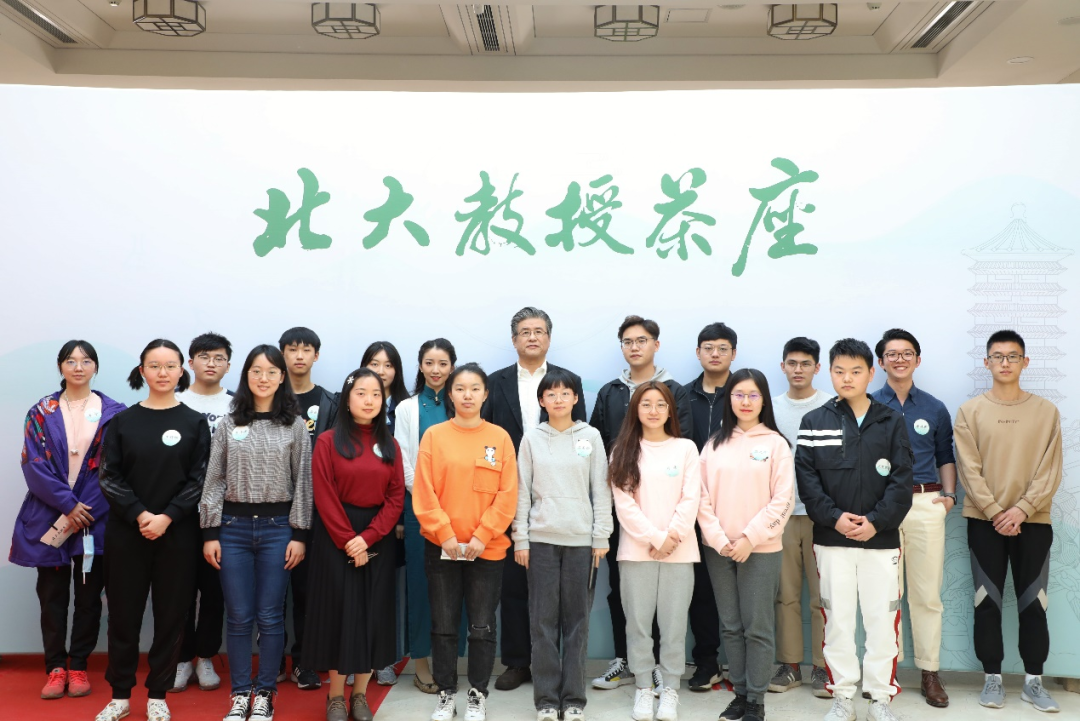
Group Photos on Site
At the end of the activity, Bai Jianjun takes a photo with the students, and writes a message for the students: "Everyone has something better than me, but I am different from everyone." Students who attended the lecture said that Bai Jianjun's narrative on general education and interdisciplinary learning has inspired them to engage in interdisciplinary communication and learning, and to make a difference in the wider world.
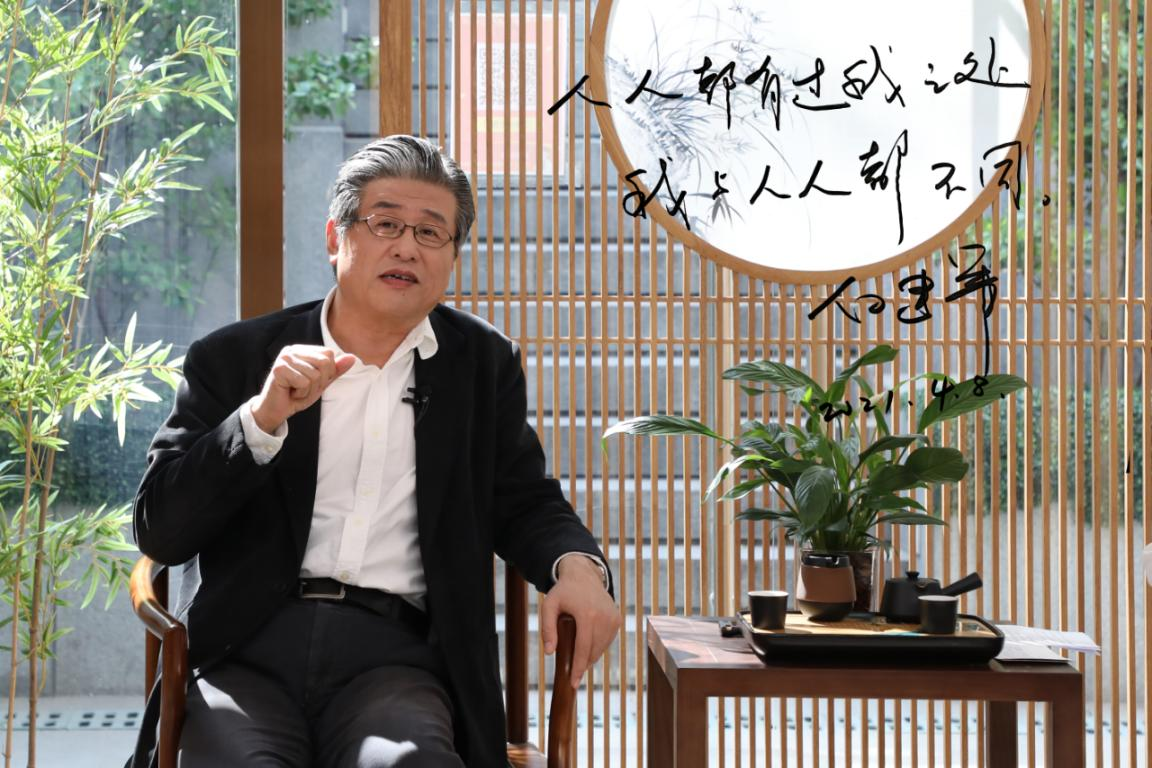
Bai Jianjun wrote a message for the students
Interdisciplinary is an inevitable outcome of the development of science, and interdisciplinary fusion has gradually become the norm. In 2016, General Secretary Xi Jinping proposed to strengthen discipline foundation and cultivate new interdisciplinary growth point at the National Conference on Science and Technology Innovation, the Conference of Academicians of the Two Academies, and the Ninth National Congress of the China Association for Science and Technology. In 2018, during a visit to Peking University, General Secretary Xi Jinping pointed out that "great efforts should be made to form an interdisciplinary group." At present, new interdisciplinary branches are emerging, and the interdisciplinary fusion is unstoppable. Students of Peking University should be aware of the current development trend of our country, try to become high-level creative, compound and applied talents, cope with the change, open up a new situation, and shoulder the mission of realizing the great rejuvenation of the Chinese nation.
Translated by Lin Yufang
Edited by Zhang Yating



